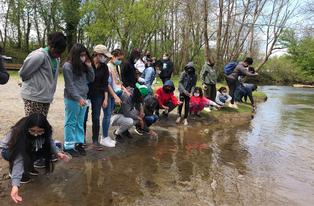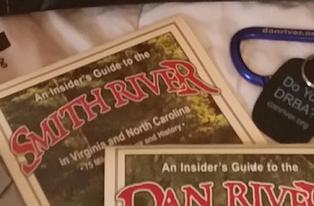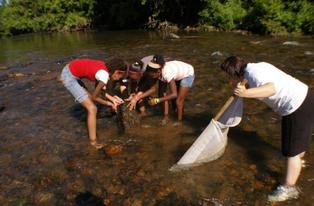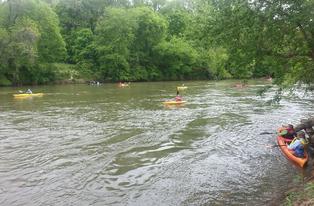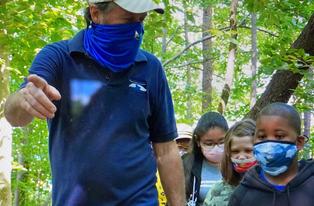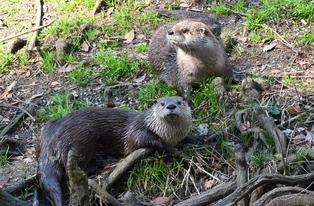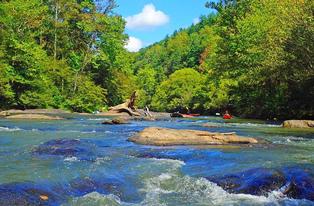Hands On Environmental Science Provides Real World Experiences
September 25, 2019
During the 2018-2019 school year and a portion of the 2019-2020 school year, DRBA worked with students and schools in the Martinsville, Henry County, and Patrick County area to provide real world experiences through trending learning practices called project-based learning.
Many schools in the basin are leaning to project based learning as a way for students to be hands-on and learn through team work. Our programs promote many important characteristics through this type of learning such as leadership, team building, willingness to take risks, and social responsibility.
Much of the focus for hands-on environmental education programs is done in northern Virginia and along the eastern shore due to the strong focus on the Chesapeake Bay and its importance, while all throughout Virginia, our natural resources need protection, and our students need to learn about them and what they can do to protect them.
"Children in our communities not only need the opportunity to learn about our natural resources, but need to feel connected to the outside world around them, and DRBA is the only environmental organization that provides these opportunities in our area," said Krista Hodges, Education Manager.
Through these opportunities, students were able to participate in activities such as raising trout from eggs to fingerlings in their classroom while observing life cycle changes, monitor water quality by chemical testing and biological testing, root native black willow cuttings in their classroom and plant them along waterways in need of restoration, while making their own observations, investigations and recordings of measurements. Many of these opportunities align with Virginia Standards of Learning (SOL) guidelines.
Additionally, a STEM Family Night was developed in collaboration with STEM Teacher, Ms. Laurie Witt, at Albert Harris Elementary for students and their families to investigate problems that may arise with the trout they raise in the classroom. Students learned that certain temperatures and water quality are important for the fish to survive. This STEM Family Night plans will be shared with teachers and schools that participate in Trout in the Classroom throughout the basin that may want to recreate the night.
Looking forward into the remainder of the 2019-2020 school year, DRBA plans to continue to provide these opportunities to youth in the basin. Currently, over 40 schools have already requested programming from DRBA for this school year.
DRBA is grateful for this opportunity to educate youth on the importance of protecting our natural resources. Thank you to the Community Foundation Serving Western Virginia and the Dr. John D. French Legacy Fund for helping make this Hands On Environmental Science for Underserved Students project a success.
